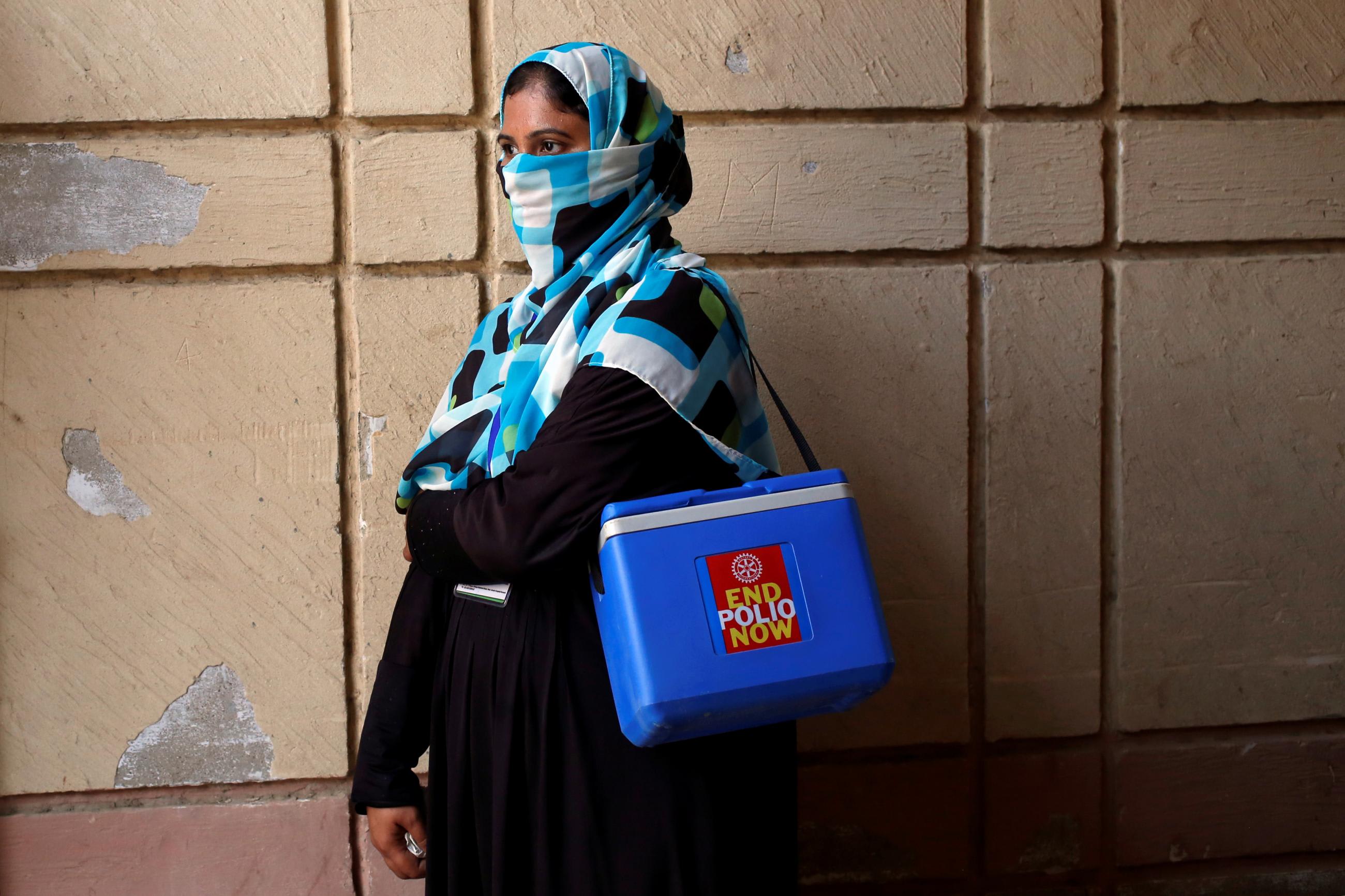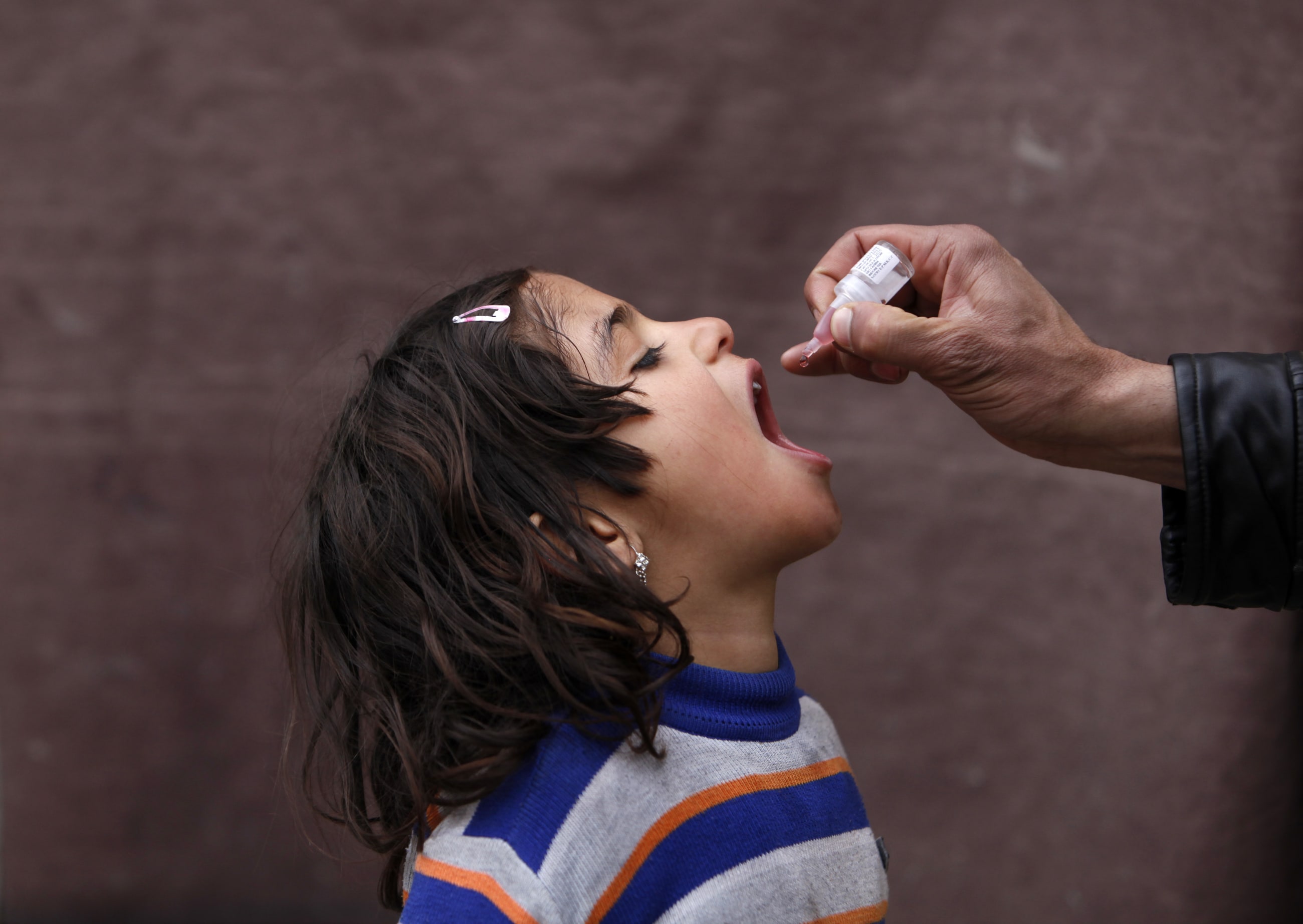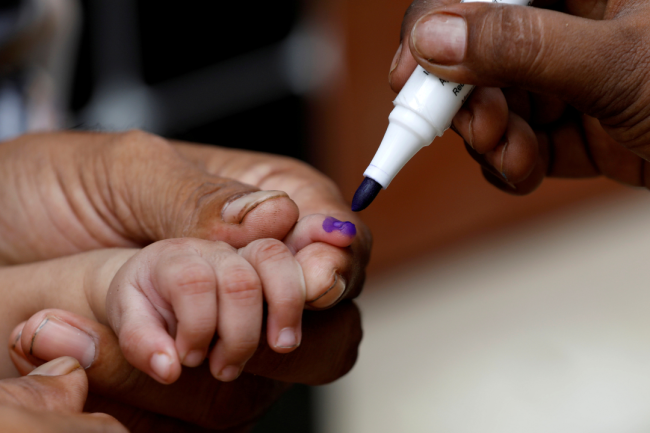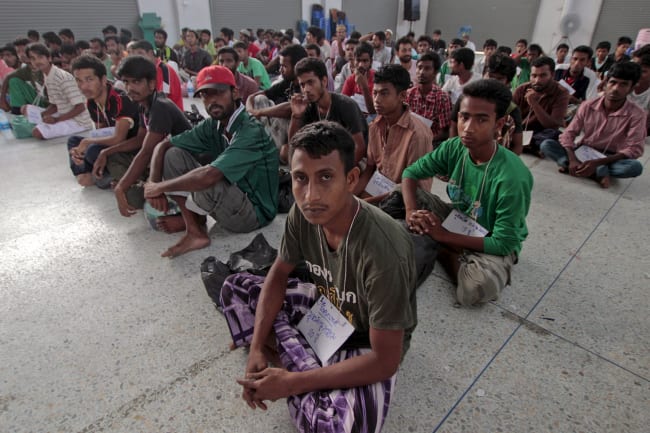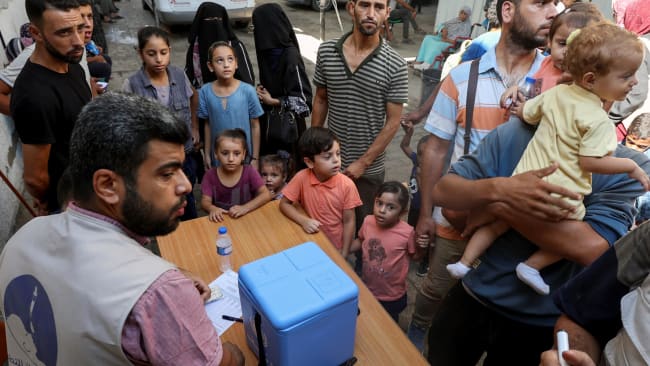On December 13, the New York Times reported that Robert F. Kennedy Jr.'s lawyer had petitioned the Food and Drug Administration to revoke approval of the polio vaccine.
President-elect Donald Trump quickly reassured the public following the report, stating that Americans are "not going to lose the polio vaccine." Kennedy himself confirmed he is "all for" the vaccine.
Still, RFK Jr.'s antivaccine views are sparking concern as he awaits confirmation as secretary of health and human services. Two congressmen—Senate Minority Leader Mitch McConnell and Tennessee Representative Steve Cohen—are polio survivors themselves. In response to the report, McConnell affirmed his support for the vaccine, and Cohen stated he would oppose Kennedy's nomination altogether.
To learn more about the legacy of the polio vaccine and the danger of efforts to undermine it, Think Global Health spoke with Walter Orenstein, former immunization programs director at the Bill & Melinda Gates Foundation and longtime head of the United States immunization program at the U.S. Centers for Disease Control and Prevention.
According to Orenstein, the polio vaccine was a "miracle," and has nearly freed the world of the virus—but only continued vaccination will "finish the job." Efforts to undermine the vaccine risk decades of progress.
Last year on a podcast, RFK Jr. suggested that the polio vaccine caused cancers that "killed many, many, many, many, many more people than polio ever did." He also reportedly called the polio vaccine's success "a mythology."
Coupled with his other antivaccine views, RFK Jr.'s statements on the polio vaccine are prompting public health experts—including Orenstein—to remind leaders and the public of its transformational role in global public health.
□ □ □ □ □ □ □ □ □ □ □ □ □ □ □
Think Global Health: What has been the polio vaccine's real impact on global health?
Walter Orenstein: The vaccine has been a miracle since 1988, when the World Health Organization embarked on an effort to eradicate polio. That year saw more than 350,000 estimated cases of paralytic polio and more than 100 countries endemic or epidemic for polio. The count is now down to fewer than 100 cases of wild poliovirus. Only two countries are considered endemic—Afghanistan and Pakistan.
This is a tremendous accomplishment. I was 7 years old in 1955 when the Salk polio vaccine became available. I was a real anti-vaxxer, not wanting a shot for something I knew nothing about. My mother said to me, "Better you should cry, than I should cry."
That's how much people wanted this vaccine. Each year recorded more than 10,000 cases of paralytic polio in the United States. At that time, it was just terrible, and everybody wanted [the vaccine]. Now, most people have never seen a case of polio, and that's a result of an outstanding efforts with great vaccines, and that we're using the vaccines.
My favorite line is: Vaccines don't save lives, vaccinations save lives. It's critical that people get vaccinated: It protects them, and it protects their communities. Polio vaccines are very safe, and it would be terrible to reduce their use.
Vaccines don't save lives, vaccinations save lives
Think Global Health: Why should people still care about polio, now that the world sees such few cases?
Walter Orenstein: Prevention is a much harder sell than therapy. When you have a successful prevention program, people stop realizing they're getting benefits. Polio is one example. As I said earlier, when the first inactivated polio vaccine became available, people wanted it like crazy. Now, most people have never seen a case of polio.
Polio anywhere can be polio everywhere. In fact, in 2022, the United States had a case of polio transmitted from outside into the country, causing a case of paralysis.
It is critical for us to finish the job because it not only protects the countries where polioviruses are currently circulating but also protects [Americans]. Polio can be a very difficult disease to detect: Fewer than 1% of infections result in paralytic illness. Vaccinating breaks any chains of transmission, and the virus will die out. If polio vaccinations are halted, a major resurgence of the disease and related instances of paralysis are likely.
Think Global Health: How could efforts to undermine the validity of the polio vaccine affect the progress made?
Walter Orenstein: They do threaten [progress]. My concern is the anti-science [mindset], the lack of understanding, and the ability to influence people who don't understand. This is substantial. Again, the case in New York is an example of a virus from elsewhere coming here, and polio is a terrible disease [that must be avoided].
Think Global Health: How can polio programs in the United States and around the world build trust?
Walter Orenstein: It is critical to have the right messengers, the right message, and the right communications channel. People whom the community trusts need to be found so that they can send their messages out about how safe polio vaccines are, how effective polio vaccines are, and how serious an illness polio is. Investment in that effort is essential, as it is in what I call implementation science [turning evidence into action].
The population as a whole needs to be educated, as do health-care providers on how to diagnose vaccine preventable diseases and how to take action should such cases be discovered. Both the public and political leaders need to understand that an investment in global programs to eradicate these vaccine preventable pathogens benefits not only lower-income countries but the United States as well.
Think Global Health: What are some of the other challenges facing efforts to eliminate polio right now?
Walter Orenstein: One of the challenges is that some of the areas where polio is circulating are in conflict. Ways of circumventing that conflict need to be found [in order to continue vaccination programs]. Another issue is that with all of the other health issues, people may not be giving priority to polio.
Think Global Health: On a more positive note, what opportunities, if any, are you looking forward to in 2025?
Walter Orenstein: Several factors are positive. The first polio vaccine developed in the 1960s worked by giving people oral live weakened poliovirus, which could then transmit from person to person in poorly immunized communities, mutate and take on both the neurovirulence and the transmissibility properties of wild polioviruses. This caused something called circulating vaccine derived poliovirus, or cVDPV—specifically, type two cVDPV was the big problem.
As long as polio is circulating in the world, people are at risk
Today a novel oral polio vaccine virus type two is available that is genetically much more stable and the basis for confidence that this chain can be broken because the great majority of polio cases are those circulating vaccine derived poliovirus type twos, and a tool to get rid of it is available.
The other issue is that a killed vaccine, originally developed by Jonas Salk called the inactivated polio vaccine or IPV, is available that has all three poliovirus types in it, one, two, and three, that is now in every recommended routine immunization schedule. Both the IPV and the oral vaccine are now routine.
Think Global Health: How can global leaders help eradicate polio for good?
Walter Orenstein: As long as polio is circulating in the world, people are at risk. As true of all vaccine preventable diseases, reservoirs exist and resurgences are entirely possible.
It's critical that high-income countries contribute to polio efforts in low- or middle-income countries, because in helping those countries get rid of polio helps not only them, but also high-income countries. It's a global benefit for everywhere to work together to eradicate the final polioviruses in this world.
